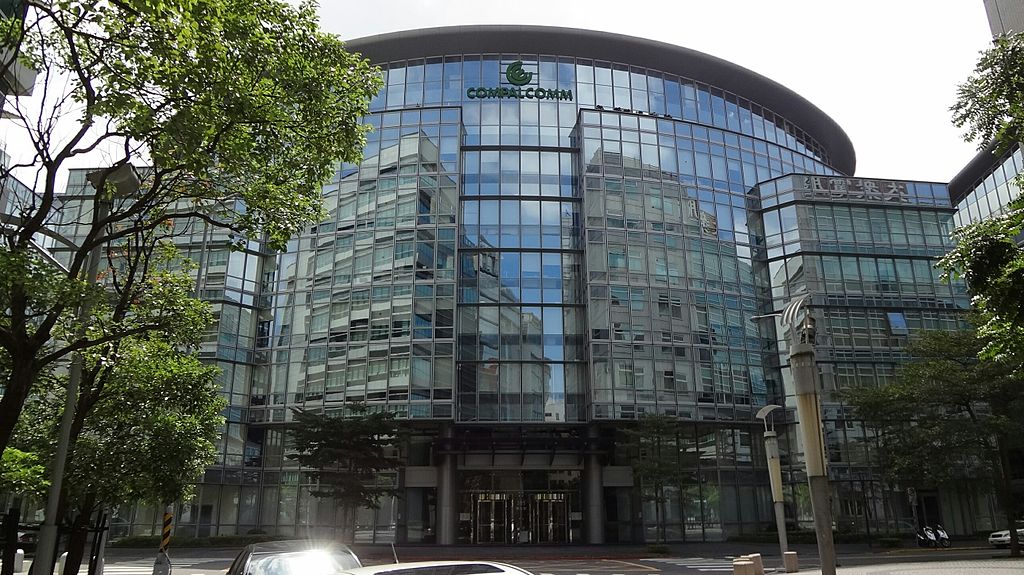Taiwanese laptop makers Compal and Inventec are considering U.S. expansion, with Texas as a top contender, in response to President-elect Donald Trump's proposed tariffs. Trump, set to take office Monday, plans to impose a 10% tariff on global imports and a 25% tariff on Mexican goods. These measures have raised concerns among Taiwanese manufacturers heavily invested in North America, producing components for electric vehicles and AI servers.
Compal CEO Anthony Peter Bonadero revealed discussions with several southern U.S. states, noting Texas' advantages, including its independent power grid and infrastructure bolstered by Samsung's investment in a semiconductor fab. However, no final decisions have been made.
Inventec, a producer of AI servers using Nvidia chips, is also evaluating U.S. locations, favoring Texas for its proximity to Mexico and robust power infrastructure. Inventec President Jack Tsai emphasized a cautious approach, awaiting Trump's policies before committing to investments.
Trump's 60% tariff threat on Chinese imports poses additional challenges for Taiwanese firms, which have invested heavily in China over the past decades. Taiwan’s government has pledged to assist companies in relocating production outside China.
Wistron, another Taiwanese tech giant, has proactively expanded manufacturing into Mexico, Vietnam, and Texas to mitigate risks. Chairman Simon Lin expressed confidence in their U.S. operations’ readiness to adapt to potential changes.
As global trade tensions rise, Texas’ infrastructure and location position it as a promising hub for Taiwanese firms aiming to navigate U.S. tariff policies while ensuring supply chain stability.



 SpaceX Pushes for Early Stock Index Inclusion Ahead of Potential Record-Breaking IPO
SpaceX Pushes for Early Stock Index Inclusion Ahead of Potential Record-Breaking IPO  Sam Altman Reaffirms OpenAI’s Long-Term Commitment to NVIDIA Amid Chip Report
Sam Altman Reaffirms OpenAI’s Long-Term Commitment to NVIDIA Amid Chip Report  Nasdaq Proposes Fast-Track Rule to Accelerate Index Inclusion for Major New Listings
Nasdaq Proposes Fast-Track Rule to Accelerate Index Inclusion for Major New Listings  Google Cloud and Liberty Global Forge Strategic AI Partnership to Transform European Telecom Services
Google Cloud and Liberty Global Forge Strategic AI Partnership to Transform European Telecom Services  American Airlines CEO to Meet Pilots Union Amid Storm Response and Financial Concerns
American Airlines CEO to Meet Pilots Union Amid Storm Response and Financial Concerns  Hims & Hers Halts Compounded Semaglutide Pill After FDA Warning
Hims & Hers Halts Compounded Semaglutide Pill After FDA Warning  Sony Q3 Profit Jumps on Gaming and Image Sensors, Full-Year Outlook Raised
Sony Q3 Profit Jumps on Gaming and Image Sensors, Full-Year Outlook Raised  Trump Backs Nexstar–Tegna Merger Amid Shifting U.S. Media Landscape
Trump Backs Nexstar–Tegna Merger Amid Shifting U.S. Media Landscape  Trump Allows Commercial Fishing in Protected New England Waters
Trump Allows Commercial Fishing in Protected New England Waters  Pentagon Ends Military Education Programs With Harvard University
Pentagon Ends Military Education Programs With Harvard University  SoftBank Shares Slide After Arm Earnings Miss Fuels Tech Stock Sell-Off
SoftBank Shares Slide After Arm Earnings Miss Fuels Tech Stock Sell-Off  Japan Election 2026: Sanae Takaichi Poised for Landslide Win Despite Record Snowfall
Japan Election 2026: Sanae Takaichi Poised for Landslide Win Despite Record Snowfall  Missouri Judge Dismisses Lawsuit Challenging Starbucks’ Diversity and Inclusion Policies
Missouri Judge Dismisses Lawsuit Challenging Starbucks’ Diversity and Inclusion Policies  Nvidia CEO Jensen Huang Says AI Investment Boom Is Just Beginning as NVDA Shares Surge
Nvidia CEO Jensen Huang Says AI Investment Boom Is Just Beginning as NVDA Shares Surge  Nvidia, ByteDance, and the U.S.-China AI Chip Standoff Over H200 Exports
Nvidia, ByteDance, and the U.S.-China AI Chip Standoff Over H200 Exports  Once Upon a Farm Raises Nearly $198 Million in IPO, Valued at Over $724 Million
Once Upon a Farm Raises Nearly $198 Million in IPO, Valued at Over $724 Million 































